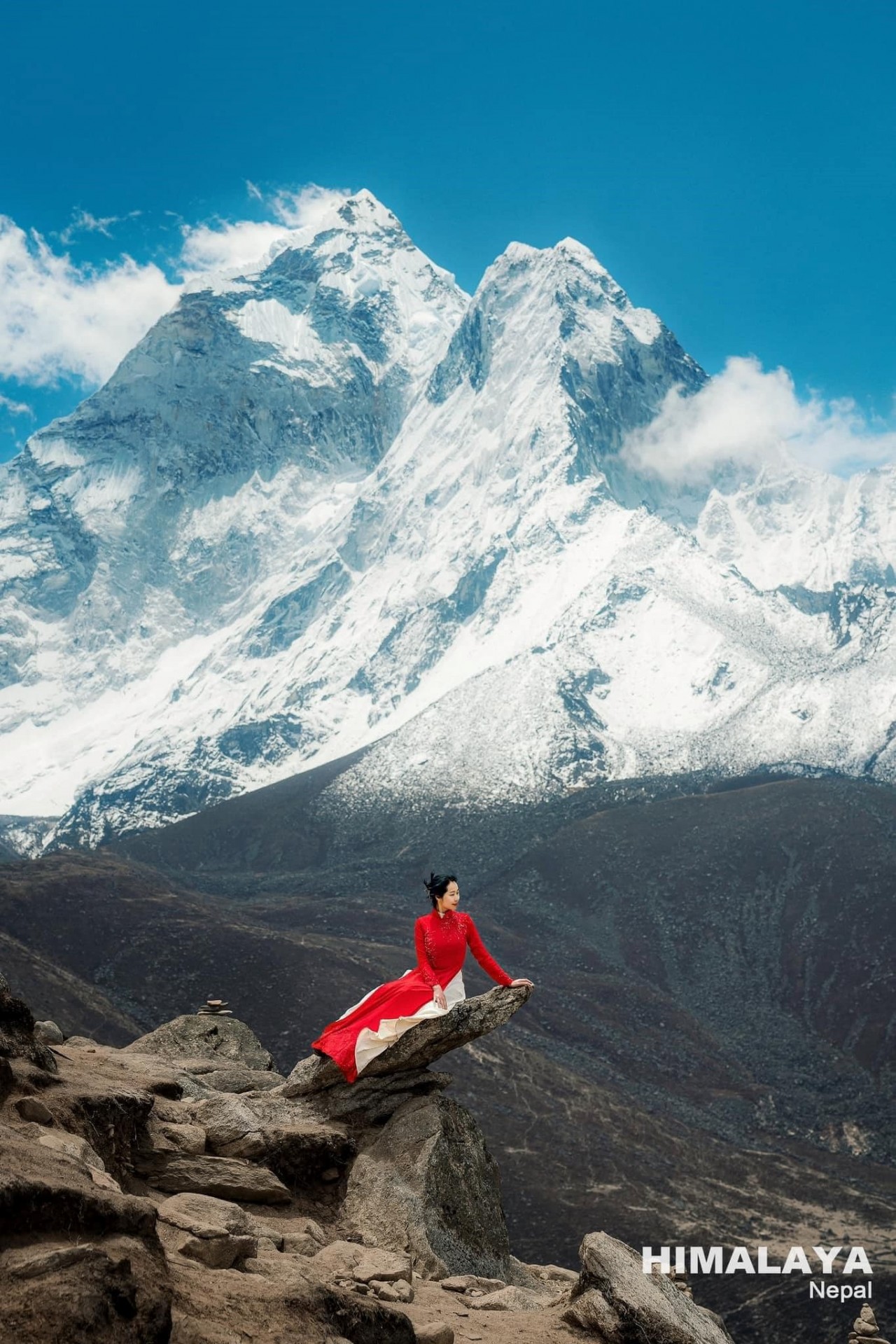The Best Photographs Of 2021, And Stories To Be Told
People use words to tell a story, but photographs and arts can do as well, and maybe even better than words themselves. It is not easy to convey every details or emotions into one single shot, and these wonderful photos capture everything from the terrifying power of nature to the human cost of war and Covid. This year, The Guardian has released a series of the best photographs of 2021, and the stories behind them.
1. A funeral for Covid victims, Mumbai
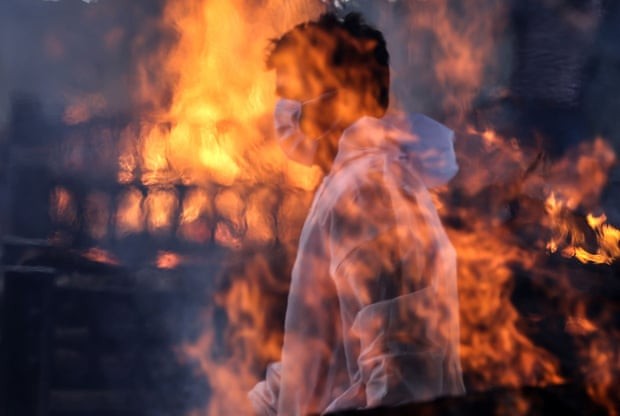 |
| Photo: Divyakant Solanki/EPA-EFE/Shutterstock |
“23 April I was staying on the outskirts of Mumbai when news broke that there was a fire in one of the hospitals dealing with Covid patients. I rushed over to find them shifting patients to other hospitals; they said more than 10 people had died already as a result.
The funeral was devastating. There were 10 to 12 Covid victims laid out on the funeral pyre with their relatives gathered around, many of them in tears. Dealing with the emotions of relatives and loved ones is the most difficult part of covering events as a photojournalist.
Civic workers, such as the man in this photo, had a very important role in funerals during Covid – they were the only people allowed to issue last rites. Sadly, there wasn’t nearly enough PPE for relatives to be able to enter the funeral ground or touch the bodies of their dead family members.
This photo is very close to my heart; I have seen so many dead bodies over the past year, but it is difficult to capture the impact that has had on me, let alone the people who have lost relatives. I think seeing a man in PPE, sombrely walking between funeral pyres, shows the human toll of the pandemic. As told to Alex Mistlin”.
2. Tunisian people wait for help on a wooden boat, Lampedusa, Italy
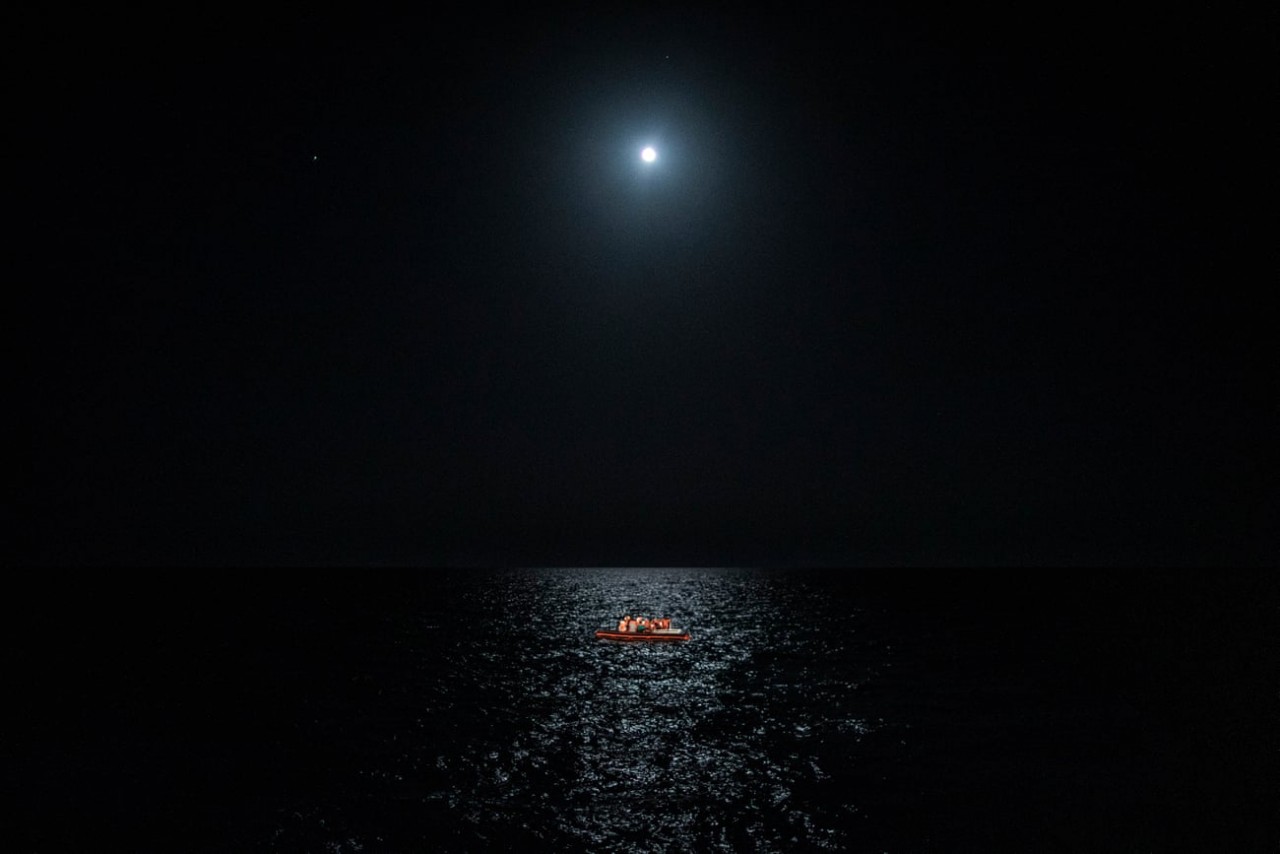 |
| Photo: Santi Palacios/AP |
A wooden dinghy carrying 19 African migrants was so heavily laden it was almost taking in water over its sides in the open sea off the Italian island of Lampedusa. The two babies onboard were crying.
The dinghy, stuck in the Mediterranean with its outboard engine apparently broken, was just one of the boats helped by volunteers from the Spanish charity Proactiva Open Arms amid a surge in arrivals to Lampedusa.
The Astral was too small to take the migrants on board itself, but stayed to provide support as night falls until they were picked up by the Italian coastguard. It kept the dinghy in its searchlights after its team, on a speedboat launched from the Astral, gave the migrants life jackets and water, according to Reuters.
According to the U.N.-affiliated International Organization for Migration, more than 1,100 people fleeing conflict and poverty in Africa and the Middle East have perished this year in the Mediterranean.
“25 July We were sailing in international waters just south of the island of Lampedusa when we heard fishers calling through the radio, saying there was this small boat with 17 people in it that was taking on water and desperate for help.
The most difficult thing about working at sea is having to work around the rescue operation. The sea route connecting Libya to Italy is one of the deadliest migrant routes in the world. You are in the middle of nowhere, which can be very challenging, especially at night. But when you are lucky and have enough light, or a full moon, you really get the chance to show how lonely the crossings are.
I worry that it is not always apparent how extreme these situations are. People have already seen pictures of refugees drowning in the Mediterranean; everyone knows that it is going on. So, the goal is to take pictures that better convey the intensity of their experiences. AM”.
3. Kim Kardashian at the Met Gala, New York
 |
| Photo: Justin Lane/EPA |
On the steps of the Metropolitan Museum of Art last night, celebrities interpreted this year's Met Gala theme, "In America: A lexicon of fashion" with homages to American icons, blunt political statements and thoughtful takes on the US identity and heritage.
But Kim Kardashian West made a dramatic entrance later in the night, completely covered in black from head to toe, her ponytail emerging from the opaque head covering and trains of fabric trailing behind her. The faceless custom Balenciaga look was anything but anonymous -- Kardashian West has been teasing different masked and bondage-esque Balenciaga looks for weeks. She was joined on the red carpet by the luxury label's elusive creative director, Demna Gvasalia, who was also entirely obscured in black.
But rather than being a stark statement on the state of the country -- or a reference to the "dementors" of Harry Potter, as some Twitter users were quick to compare -- Kardashian West's outfit is seemingly connected to her estranged husband, Kanye West, who has been promoting his new album, "Donda" (the artwork of which is a single black square), according to CNN.
“13 September I have been covering the Met Gala for a number of years. It is always a bizarre scene. Any red carpet is exciting, but it is such a weird mix of people: businesspeople, music stars, movie stars. There is a frenetic quality to the whole thing that means you can get two completely random celebrities standing next to each other.
This is a funny picture, in some ways. To have somebody show up in this outfit, totally covered in black – it shows how celebrity is at a weird juncture. Of course, there are plenty of bizarre outfits at the Met Gala – there is a long procession of crazy outfits and celebrities trying to one-up one another – but being covered in black was so different that it caught my attention. Something really wacky, or really sexy, is almost more mundane.
Kim Kardashian is always of great interest to people. It is so much about what she has decided to do in that moment. AM”.
4. A house covered by ash on La Palma in the Canary Islands, Spain
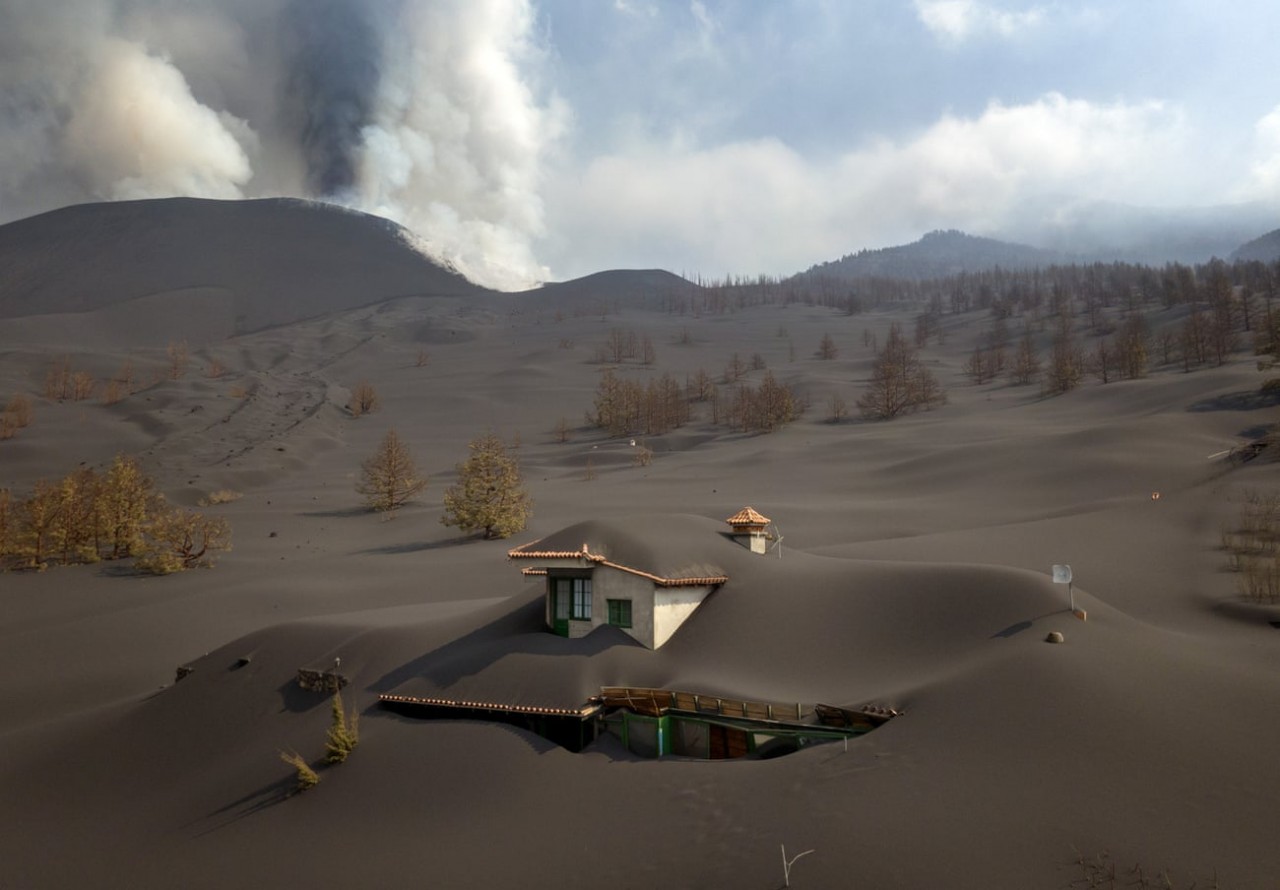 |
| Photo: Emilio Morenatti/AP |
The resort island of La Palma, one of the Canary Islands off the northwestern coast of Africa, was battered by volcanic eruptions for more than two months.
The Cumbre Vieja volcano erupted for the first time in 50 years on September 19, 2021, laying waste to the Cabeza de Vaca area and prompting the evacuation of thousands of residents. Authorities in La Palma, home to 85,000 people and a popular destination for European tourists, say the volcano has been active ever since.
Cumbre Vieja is now notorious for its erratic activity, besetting the island with toxic gas, new lava fissures, and plumes of ash that have repeatedly put its airport out of commission. Residents are exhausted by the months-long emergency, and some are leaving the island as jobs dwindle and hazards abound.
Experts say this year's volcanic event could soon be the island's longest recorded eruption in 500 years, El Pais reported. The record is currently held by the 1646 eruption of the Tehuya volcano, which lasted 84 days.
“30 October The first time I went to La Palma to cover the eruption of the Cumbre Vieja volcano, the exclusion zone was protected by police, which meant I wasn’t able to get close enough. This was taken on my second trip. I spotted a house on the horizon that was completely covered in ash. My first aim was just to go there on foot, but it wasn’t possible, because of the hot rocks and stones rolling down from the volcano. It can be really impersonal using a drone, but sometimes it is the only option – the only way of capturing the magnitude of the tragedy.
The volcano continued to emit vast amounts of magma and ash for more than a month after the eruption. I saw a lot of houses covered completely, but this one was the most visually affecting, because the house is so isolated. It is such a clean snapshot of the devastation the volcano caused. The house is still standing, though. AM”
5. An Indonesian burial team in Yogyakarta, Java
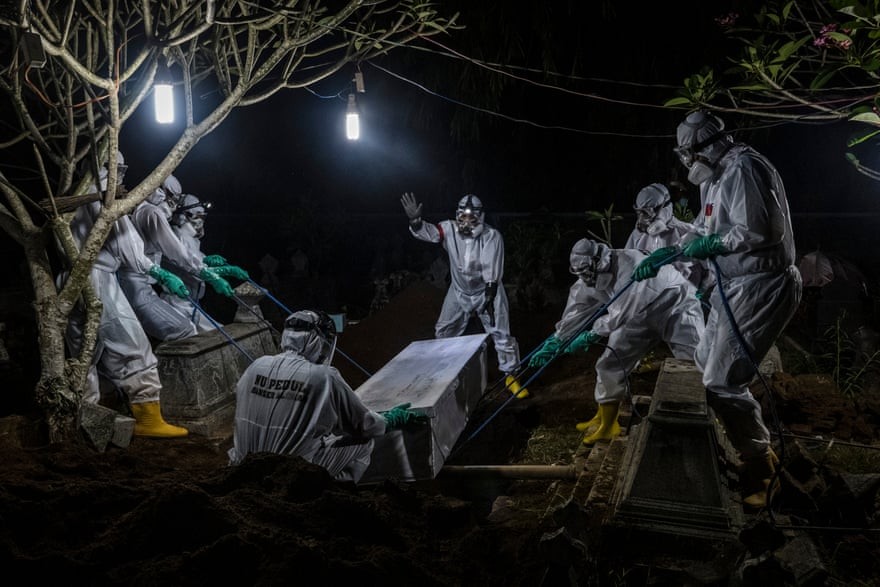 |
| Photo: Ulet Ifansasti/Getty Images |
“12 August In July and August, Indonesia was really struggling to contain its Covid outbreak. I had the idea of photographing a burial team to show how Covid protocols were affecting every aspect of life in Indonesia. Yogyakarta was particularly badly hit by the Delta variant; you would hear ambulance sirens everywhere you went and the burial teams were at the frontline. It is them who have to deal with the situation when people go into hospital and don’t come out alive.
I was at a hospital when, at about 11pm, I got the call to put on my hazmat suit and head to the cemetery. Covid protocols meant that people had to be distant from their family in their final moments. It was so sad seeing the families praying outside the cemeteries, knowing that their loved one’s burial was being left to a team of strangers in hazmat suits. AM”
6. Tom Daley knits before the men’s 10m platform final at the Olympics, Tokyo
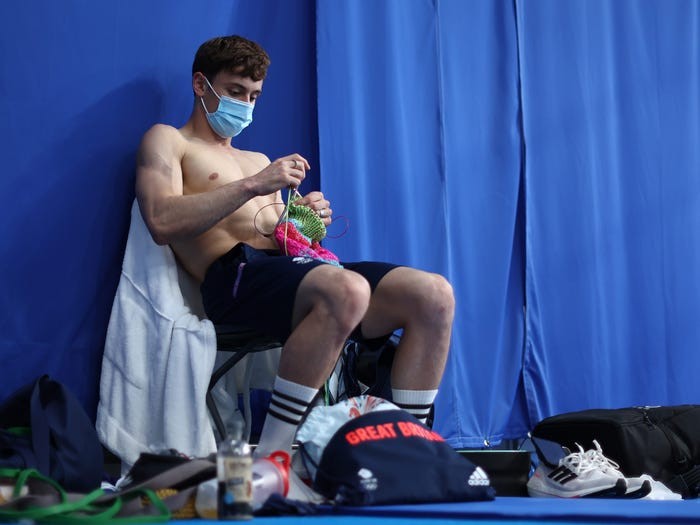 |
| Photo: Clive Rose/Getty Images |
Tom Daley has been making a name for himself at the Tokyo Olympic Games on and off the diving board.
The British diver, who has been competing in the Olympics since he was 14 years old, won a gold medal last week in synchronized 10-m platform diving alongside his diving partner, Matty Lee. Daley, though, has stayed in the headlines thanks to what he calls “his secret weapon”—his knitting skills.
Daley went viral when he was spotted knitting while cheering on the divers at the women’s 3-meter springboard final. It was such an unexpected sight that the BBC’s sports commentators mentioned it on air during their coverage of the diving competition. “What do you reckon he’s crafting there?” asked BBC commentator Katherine Downes. “I wonder who he’s making that purple concoction for?” It even made it to Team Great Britain’s official Twitter page. (Daley later reported that he was making a sweater for his friend’s French bulldog.), according to Time.
“7 August I have been photographing Tom since Beijing 2008. He is a joy to photograph.
This was just before his 10m Olympic final. With the Covid protocols, there wasn’t enough time to go back and chill in the Olympic village, so he just found a quiet corner of the swimming pool, practically under the diving board, and got his knitting kit out.
Him not having his shirt on adds a nice touch, because of the contrast between his masculinity – his washboard abs and athlete’s physique – and how relaxed he looks, knitting away. I just thought it was a nice moment, not necessarily for now, but to look back on in 20 or 30 years’ time.
It was quite a strange Olympics, because of Covid, but for an athlete to start knitting in the middle of an Olympic competition was truly unique. It is very much in keeping with who he is, which is cool. Looking back, people probably remember the whole knitting thing better than him winning his medals. AM”
7. A mob attempts to breach the US Capitol, Washington DC
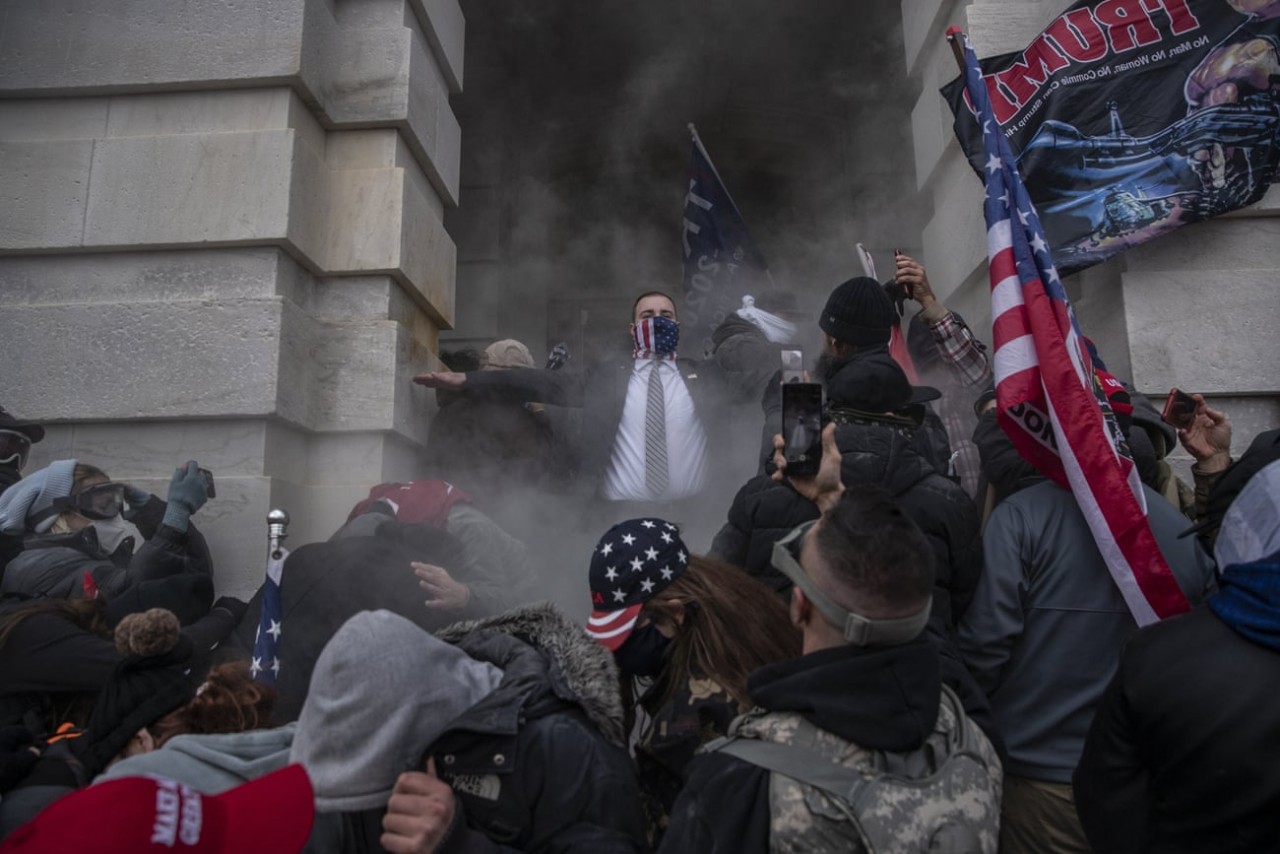 |
| Photo: Victor J Blue/Bloomberg |
On January 6, 2021, a mob of supporters of President Donald Trump attacked the United States Capitol in Washington, D.C. They sought to overturn his defeat in the 2020 presidential election by disrupting the joint session of Congress assembled to count electoral votes that would formalize then President-elect Joe Biden's victory. The Capitol Complex was locked down and lawmakers and staff were evacuated, while rioters assaulted law enforcement officers, vandalized property and occupied the building for several hours. Five people died either shortly before, during, or following the event: one was shot by Capitol Police, another died of a drug overdose, and three died of natural causes. Many people were injured, including 138 police officers. Four officers who responded to the attack died by suicide within seven months.
Dozens of people present in Washington, D.C. on the day, including some who took part in the riot, were found to be listed in the FBI's Terrorist Screening Database, most as suspected white supremacists. Over 30 members of anti-government groups, including the Oath Keepers, Proud Boys, and Three Percenters, were charged with conspiracy for allegedly planning their attacks on the Capitol, but the majority of the people charged with crimes relating to the riot had no known affiliation with far-right groups, and did not plan the riot in advance.
"6 January I had covered a series of large rallies in DC around Trump’s Stop the Steal campaign. By 6 January, we were all prepared for violence around the city, mainly from far right or fascist groups, but anyone who says they knew what was going to happen is a liar.
Trump came on stage to the adulation of the crowd, but after 10 or 15 minutes people began peeling away and marching up Pennsylvania Avenue. Maybe they had just heard it all before, but I felt pretty strongly that I needed to be at the front of that group.
This picture was taken towards the end of the riot, just after they had breached Congress. I had already been inside with the rioters and was very close to the killing of Ashli Babbitt by a Capitol police officer.
The US Congress is a huge building and there were maybe 2,000 protesters trying to breach a set of wooden doors and re-enter the building. Police units inside the building had run out of the chemical irritant they use for crowd control and had resorted to spraying fire extinguishers out the doors. That was when one protester stood at the entrance, spreading his arms in triumph, almost as if to celebrate Trump’s victory in that moment. AM”
8. Tourists watch a volcano erupt, Iceland
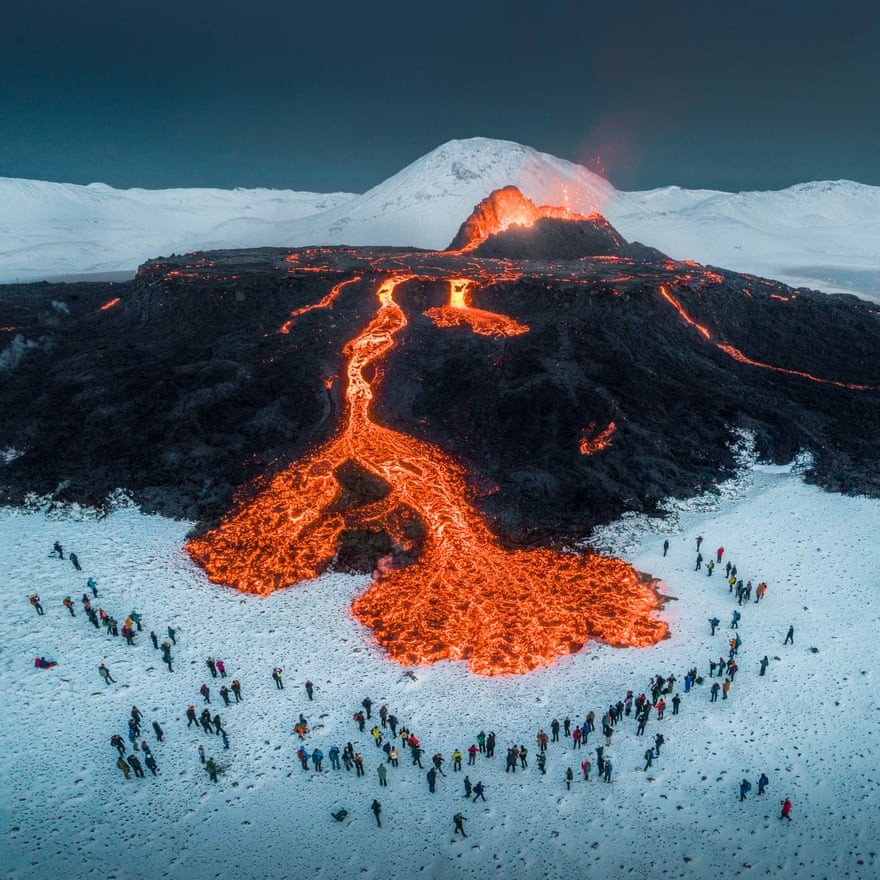 |
| Photo: Arnar Kristjansson |
Mount Fagradalsfjall, an erupting volcano in Iceland, has become the star of the show for tourists and locals. Thousands of hikers have flocked to see the spectacle since the volcano began erupting. Some even managed to roast marshmallows and hot dogs over the cooling lava.
When it first started erupting, authorities banned the public from getting close. But after a few hours they judged it safe enough to allow visitors to get a closer look.
Volcanic activity is not a rare occurence in Iceland but it happens usually in remote places. Mount Fagradalsfjall, however, is only 40km away from the capital Reykjavik and can be reached from a main road on foot.
“9 April This was taken just as the second crater started to form. Earlier in the day, I was caught in a massive snowstorm and I was worried there would be no way to capture it on film. But I decided to wait around just in case the snow cleared; you can never trust the forecast in Iceland.
It was weird seeing people standing so close. It can be very dangerous, mainly because of the gas, rather than the lava – if the wind changes direction, then people can get violently ill. There was a teenager taking TikTok videos of himself jumping fewer than five metres away. It was one of those pinch-yourself moments where you capture something truly surreal.
The crater you can see in this photo died within a few days, but some of the others formed from this eruption lasted for months. The one here is the most photogenic, however. I think it is really quite beautiful. AM”
9. A girl in her destroyed home, Gaza
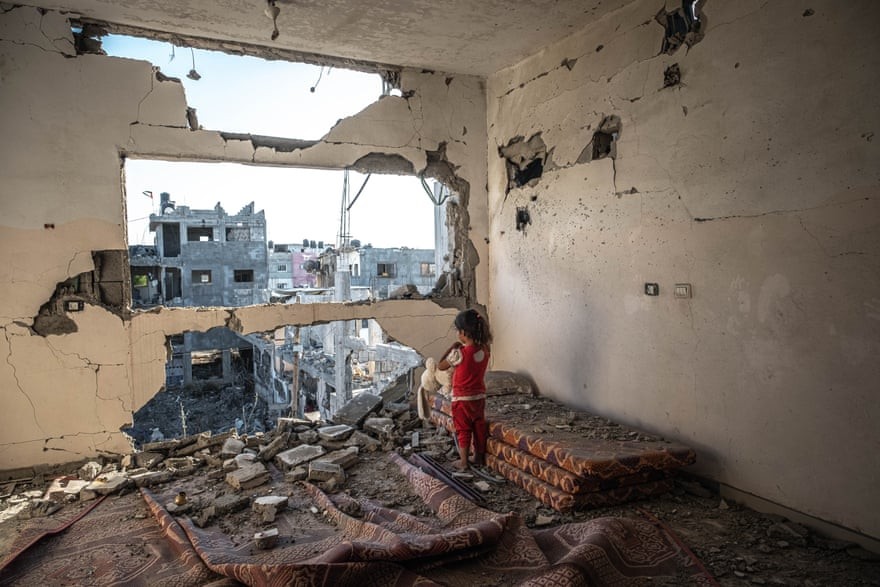 |
| Photo: Fatima Shbair/Getty Images |
“24 May I was on assignment for Getty Images that day to cover Gaza after the [Gaza-Israel] ceasefire agreement. I headed straight to Beit Hanoun – the neighbourhood had been hit while families were in their homes.
I visited all the families there, heard their stories and went inside the destroyed houses, including the home of Raghad Naseer. Raghad accompanied me from one room to another, carrying her teddy bear. I asked Raghad about her room and she took me to it.
She was quiet the whole time, with signs of shock and sadness on her face. She stood in her room in complete silence, contemplating what had happened to the neighbourhood through the destroyed wall, as if she could not comprehend it. Seeing Raghad in this state was very painful. In this picture, she was expressing the feelings of all the residents of the neighbourhood. It sums up everything that happened.
I visited Raghad again this month. She and her family had to leave the neighbourhood and rent a small house far away. Raghad and her siblings suffer psychologically from what happened; they feel very upset at losing their home and being separated from their neighbours. Taking this picture made me think: my home could have been like this at any moment and I would have lived with the same feeling. I look at the people in Beit Hanoun and think how strong they are. ES”
10. The last moments of an orphaned mountain gorilla, Virunga national park, Democratic Republic of the Congo
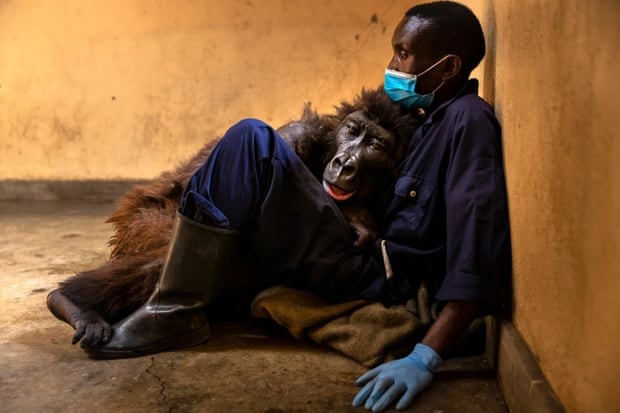 |
| Photo: Brent Stirton/Getty Images |
“21 September I have worked with those gorillas for quite a long time. I was in the Democratic Republic of the Congo in 2007, doing a story on how a group of rangers had gone to South Africa for paramilitary training, to combat the various militia groups that were operating in that park. Three days into that assignment, we heard that a group of severely endangered mountain gorillas had been killed. Since then, I have been returning to the park on a regular basis.
In September, I was focused on documenting an operation to clear a group of militias out of the park. While I was there, Ndakasi wasn’t doing well. I went to cover a medical procedure they were doing with her. When she came out of anaesthesia, her caregiver, Andre Bauma, and two vets worked to resuscitate her. After that, she was very weak and crawled on top of Andre. Every part of her was on top of him, the same way a baby would. It was very childlike. The park knew she was very sick, but was hoping she would recover. Then things took a turn.
It was very sombre. Once it was clear what was happening, I shot these frames and left, because it became a very personal moment between her and Andre. She was the only gorilla to survive that massacre in 2007. She was a baby and was found suckling her dead mother. It was very cold and babies can die of exposure very quickly. On that day, Andre became her caregiver. The story is he put her inside his shirt for warmth and walked about four miles through a dangerous area. There is a certain cycle to how she died, being close to him, being held by him again. As told to Emine Saner”
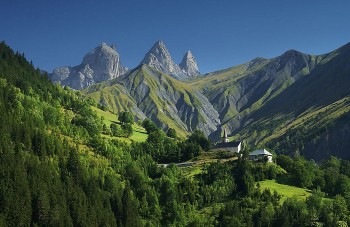 | “Autumn On The Alps”: Gorgeous Photographs Taken By Polish Photographer Karol Nienartowicz, a famous and talented Polish photographer, has spent his time travelling and taking wonderful, breathtaking pictures of the Alps, one of his favourite ... |
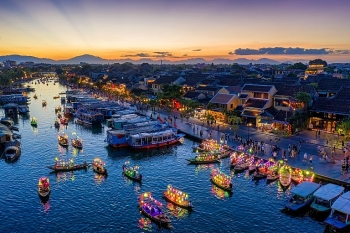 | Amazing photographs in " Exploring Vietnam" contest Photo contest "Exploring Vietnam" was held online at the website anhnghethuatdulich.com from 8/1 - 5/6/2020. After 6 months of launching, the contest attracted 15,610 photos ... |
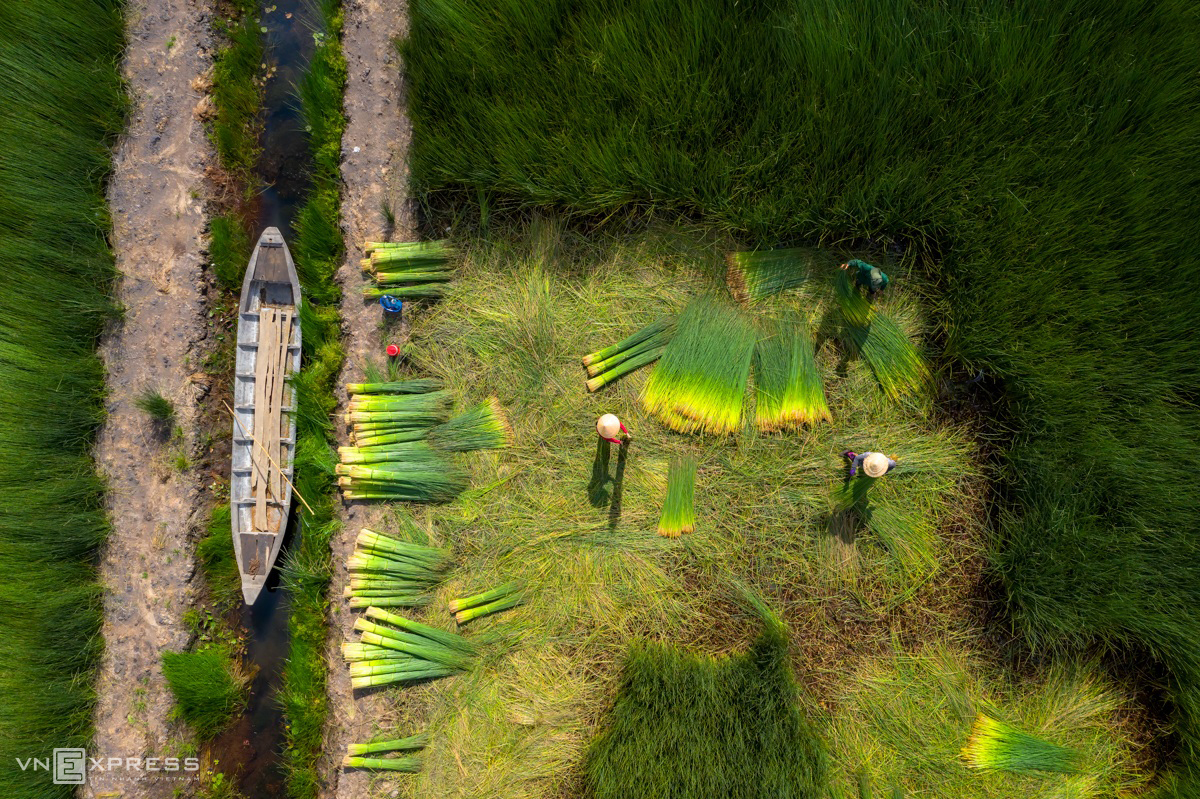 | Grass harvest seasons in the West side of Vietnam When entering the harvest season, the picturesque green grassland in Tan Phuoc holds photographers' feet by the serenity of the countryside. |
Recommended
 World
World
Thailand Positions Itself As a Global Wellness Destination
 World
World
Indonesia Accelerates Procedures to Join OECD
 World
World
South Korea elects Lee Jae-myung president
 World
World
22nd Shangri-La Dialogue: Japan, Philippines boost defence cooperation
 World
World
Pakistan NCRC report explores emerging child rights issues
 World
World
"India has right to defend herself against terror," says German Foreign Minister, endorses Op Sindoor
 World
World
‘We stand with India’: Japan, UAE back New Delhi over its global outreach against terror
 World
World

